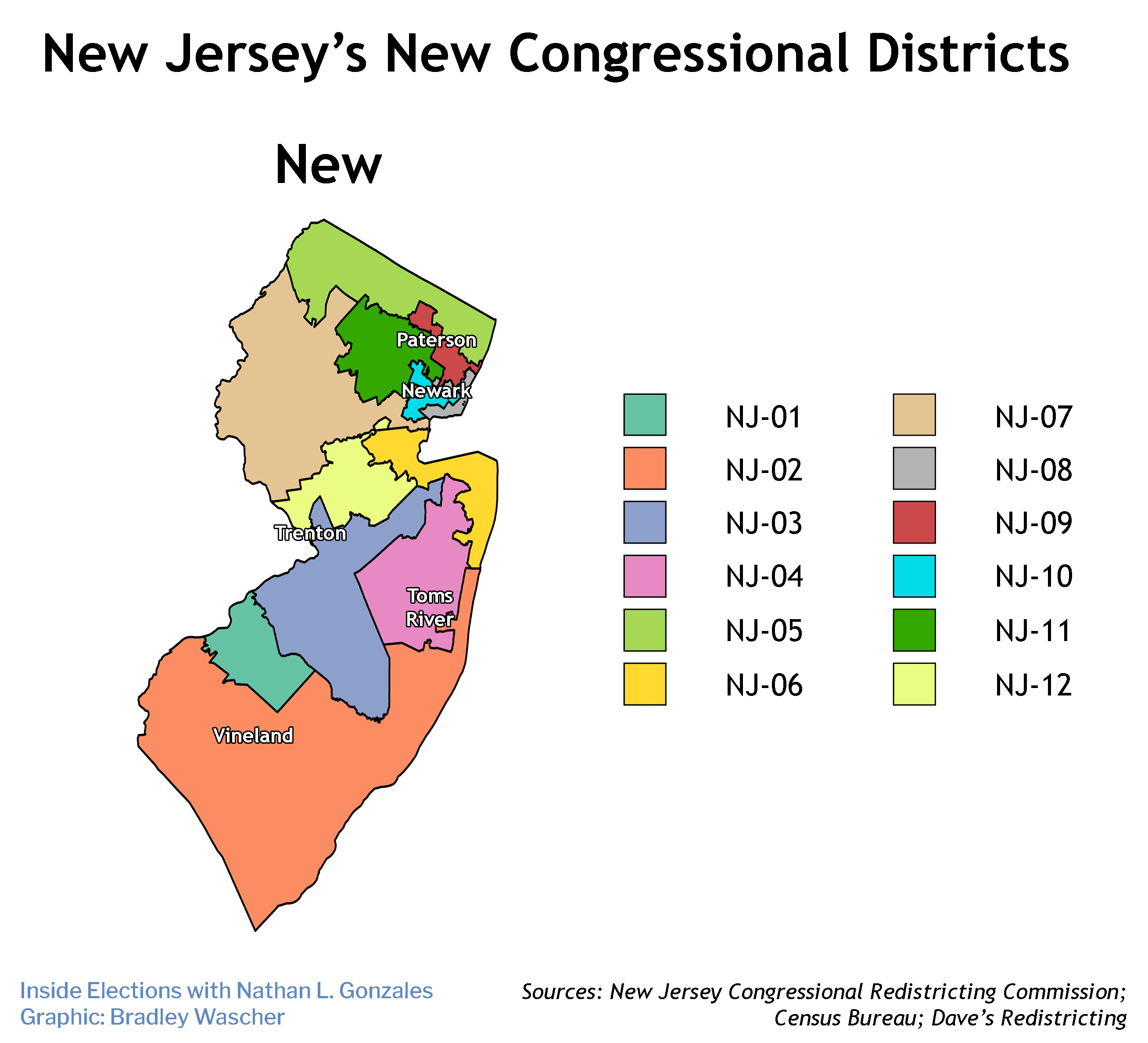Winning has consequences. Electoral success in House races over the last decade made the latest round of redistricting more complicated for New Jersey Democrats because they have more incumbents. The final result looks like one of their own will face a very challenging re-election race.
Ten years ago, a seven to six Democratic advantage in the New Jersey delegation went to six Democrats and six Republicans following reapportionment, redistricting, and the 2012 elections. Now, Democrats headed into the redistricting cycle with 10 incumbents compared to just two Republicans. New Jersey didn’t lose a district in reapportionment this time, but Democrats on the state’s legislative redistricting commission chose to make one of their incumbents less secure in order to help out several of their other vulnerable members, thus limiting the potential damage in a Republican wave election year.
Considering Republicans need a net gain of just five seats to retake the House majority, Democrats can’t afford to lose any seats. But redistricting is about the near term and the long term, and having most of the Democratic incumbents in solid seats could help the party over the next decade.

1st District
South Jersey power broker George Norcross might be decamping to Florida, but his brother Rep. Donald Norcross is staying put in his Camden-anchored district, which is nearly unchanged from the past decade. The new constituency would have voted for Joe Biden, 62-37 percent and there’s no reason to believe GOP candidate Claire Gustafson will fare much better than in 2020, when she lost to Norcross by 25 points. Solid Democratic.
2nd District
Democrats flipped this South Jersey seat in 2018 only to see it slip from their grasp in 2019 when Jeff Van Drew switched...

